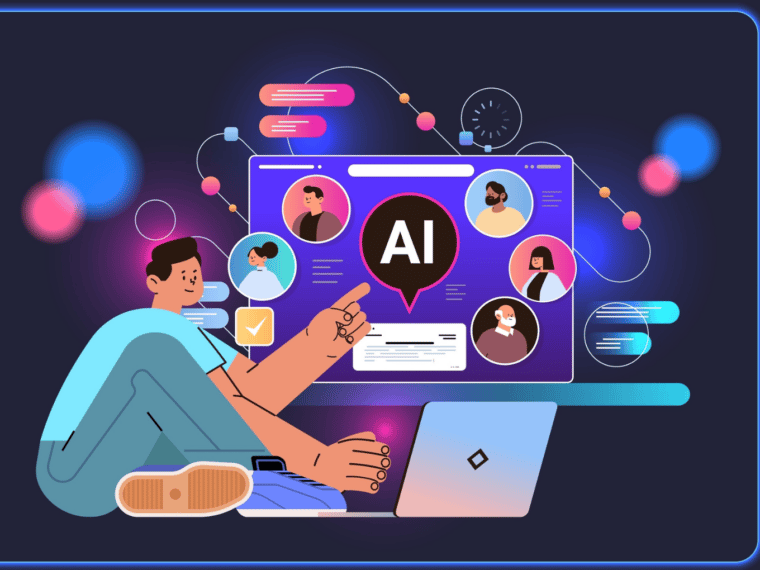
As per LinkedIn’s Emerging Jobs Report there is a 74% increase in AI Specialist roles over the past four years in India
AI-driven platforms can customise recognition programs based on an employee's profile
A case study revealed that after implementing Amara’s AI-driven engagement tools, the employee engagement score increased by 30% within six months
In the fast-changing landscape of modern workplaces, employee engagement has emerged as a critical factor for organisational success. Employees who are engaged are more productive, imaginative, and dedicated to their employers.
Traditionally, HR departments have relied on surveys, feedback forms, and periodic reviews to gauge and enhance employee engagement. However, the advent of Artificial Intelligence (AI) is revolutionising this space, offering more dynamic, real-time, and personalised approaches to fostering engagement.
This shift is particularly relevant in regions like India, where the 2024 Gallup State of the Global Workplace report highlighted that 86% of Indians felt they were either struggling or suffering—significantly higher than the global average.
Furthermore, only 14% of Indian employees reported feeling they were thriving, compared to the global average of 34%. These statistics underscore the urgent need for more effective engagement strategies, making AI a game-changer for industries worldwide.
Personalised Employee Experience
AI has the potential to improve the employee experience by offering highly personalised engagement strategies. Through advanced data analytics, AI can analyse individual preferences, work patterns, and feedback, enabling organisations to tailor engagement initiatives to each employee.
For example, AI-driven platforms can recommend personalised learning programs, suggest wellness activities, or customise recognition programs based on an employee’s profile. This level of personalisation helps employees feel valued and understood, significantly enhancing their engagement levels.
Real-Time Feedback And Analytics
Traditional methods of gauging employee engagement, such as annual surveys, often miss out on capturing real-time sentiments. AI bridges this gap by offering continuous, real-time feedback and analytics.
By analysing communication patterns and employee sentiment through natural language processing, AI can provide immediate insights into the workforce’s mood and engagement levels. This enables HR teams to address issues proactively, make informed decisions, and implement timely interventions to maintain high engagement levels.
Predictive Analytics For Proactive Engagement
One of the most powerful applications of AI in the workplace is predictive analytics. By analysing historical data, AI can predict trends and potential challenges related to employee engagement. For instance, it can identify patterns that may indicate a risk of high turnover or decreased productivity.
With these insights, organisations can take proactive measures to address these issues before they escalate, thereby retaining top talent and maintaining a motivated workforce.
Enhancing Employee Well-being
Employee well-being is an important aspect of engagement, and AI plays a crucial role in encouraging it. AI-powered wellness programs can monitor and analyse employees’ physical and mental health data to recommend personalised wellness activities, such as exercise routines, mindfulness sessions, or ergonomic improvements.
Additionally, AI can provide early warning signs of burnout or stress, enabling organisations to take timely action to support their employees’ well-being.
The impact of AI on employee well-being and engagement has been demonstrated through data provided by Amara.ai. For instance, a client case study revealed that after implementing Amara’s AI-driven engagement tools, the employee engagement score increased by 30% within six months.
Additionally, key performance indicators (KPIs) showed a 25% rise in productivity across departments, and employee turnover rates decreased by 20% in the first year. These metrics highlight the significant role AI can play in enhancing employee well-being and overall organisational performance.
AI Adoption In Southeast Asia And India
The adoption of AI technologies in Southeast Asia and India is rapidly accelerating, fueled by the urgent need for digital transformation and a desire to enhance competitiveness on a global scale. According to a report by KPMG, AI investments in Southeast Asia saw a significant increase of 33% in 2022, underscoring the region’s commitment to integrating advanced technologies.
This trend is further supported by proactive government initiatives, with countries like Singapore and India taking the lead in national AI strategies. Singapore, for example, aims to deploy AI in critical sectors such as healthcare, transport, and education by 2030 as part of its National AI Strategy.
In India, the AI workforce is growing swiftly, with LinkedIn’s Emerging Jobs Report highlighting a 74% increase in AI Specialist roles over the past four years, making it one of the fastest-growing job categories in the country.
Additionally, a Gartner survey revealed that 59% of enterprises in Southeast Asia have already deployed or plan to deploy AI solutions within the next two years, highlighting the strategic importance of AI in business planning and operations across the region.
In conclusion, the integration of AI in employee engagement strategies is not just a trend but a necessity in today’s fast-paced and competitive business environment. By leveraging AI, organisations can create a more personalised, proactive, and efficient approach to engaging their workforce. This enhances productivity and innovation while fostering a positive and fulfilling work environment.
As AI continues to evolve, its potential to transform employee engagement will only grow, making it an indispensable tool for organisations striving to achieve long-term success. Investing in AI-driven engagement tools ensures that employees are not just satisfied but truly engaged and motivated, paving the way for sustained growth and success in the ever changing business landscape.




 Fintech
Fintech Travel Tech
Travel Tech Electric Vehicle
Electric Vehicle Health Tech
Health Tech Edtech
Edtech IT
IT Logistics
Logistics Retail
Retail Ecommerce
Ecommerce Startup Ecosystem
Startup Ecosystem Enterprise Tech
Enterprise Tech Clean Tech
Clean Tech Consumer Internet
Consumer Internet Agritech
Agritech




























